- Home
- slideshows
- miscellaneous
- What ayahuasca - Silicon Valley's latest drug of choice - does to your brain and body
What ayahuasca - Silicon Valley's latest drug of choice - does to your brain and body
Ayahuasca, also known as yagé, is made by brewing certain leaves and vines together. In Quechua, the name means "vine of the dead" or "vine of the soul."

When combined, the plant released the powerful hallucinogen DMT, and the vine releases compounds that cause the DMT effect to last for hours. Alone, DMT would just last about 20 minutes.
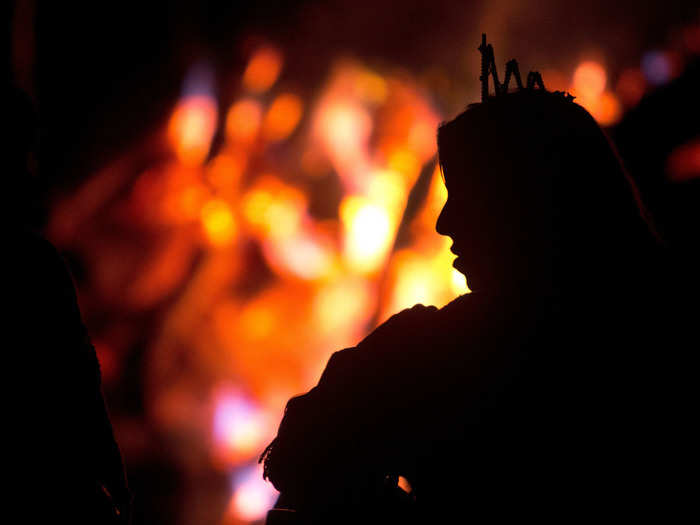
The most significant effects of DMT are feelings of being separated from the body, experiencing an unearthly environment, encountering mystical or otherworldly beings, having an altered perception of time, feeling peace and joy, and having heightened senses.
The physical effects of ayahuasca are often described as miserable, including serious vomiting, though they are temporary.
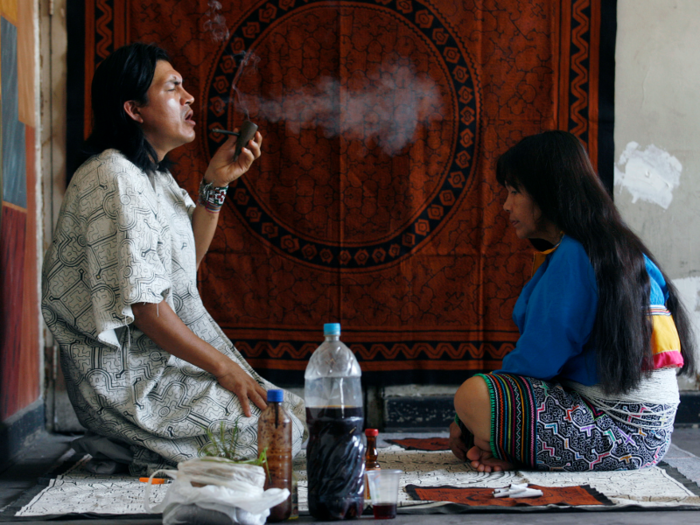
Both DMT and ayahuasca can temporarily raise heart rate and increase blood pressure. Most users experience what is often described as a purging, which manifests as potentially intense vomiting and diarrhea.
But it's the effects on the mind that are most fascinating.
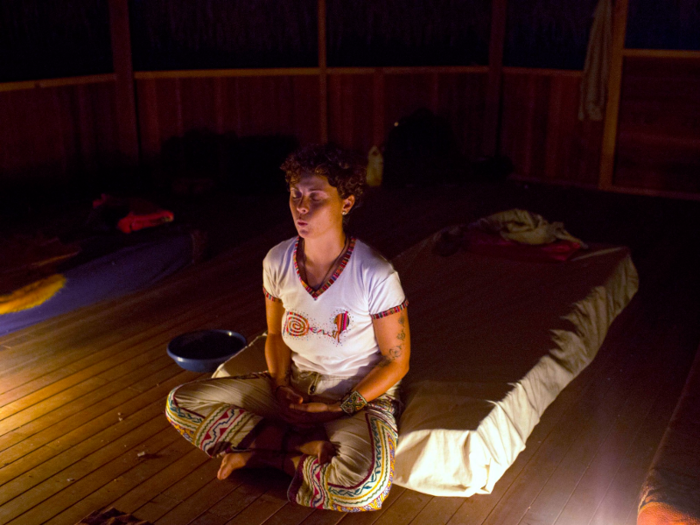
Ayahuasca is considered a powerful psychedelic, and there's always the risk that people have a scary experience on psychedelic substances. Potentially negative effects include anxiety and fear are associated with the hallucinations.
Many people report that their experiences with the drug are transformative, offering clarity and healing.

The writer William S. Burroughs traveled to South America to experience the drug, investigate its "telepathic properties," and potentially treat addiction.
Certain people experience something like a near-death experience.
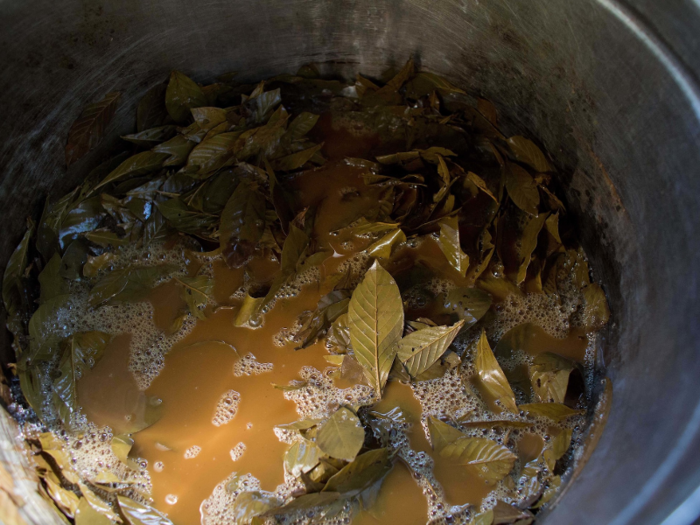
There are striking similarities between DMT trips and near-death experiences, which many people report are transformative, spiritually significant, and beneficial, according to a recently published study. Many say that they experience a sort of "death" on the drug, though this is often meant in a beneficial way.
Researchers and religious communities think ayahuasca may help treat depression, anxiety, and substance use disorders.

In medical reviews, researchers have concluded that ayahuasca can help treat depression, and many use it to help treat substance use disorders, though more research on this is needed. Researchers don't believe people develop any tolerance to DMT, indicating there's not likely to be any risk of addiction.
From a neuroscientific and psychological perspective, ayahuasca seems to induce effects on the brain that are similar to meditation.

People who take ayahuasca show increases in openness and optimism. They also show reduced activity in parts of the brain associated with depression and anxiety, and potentially even a reduction in parts of the brain associated with those conditions. Researchers have seen a similar effect with other psychedelics, which is why it's sometimes said that they "kill the ego," increasing connection to the surrounding world.
Though the substance is generally considered safe, there are still some risks.
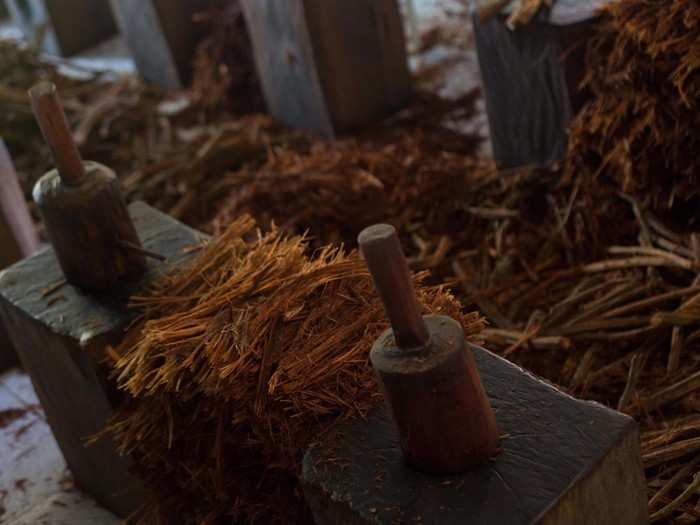
A study of poison control centers in the US concluded that most use seems to be safe and has "possible beneficial effects," but there have been a tiny fraction of people that have experienced cardiac arrest or seizures. Because the vine has effects on seratonin, there may be dangerous side effects for people using certain antidepressant medications.
Ayahuasca seems to enhance creative thinking.
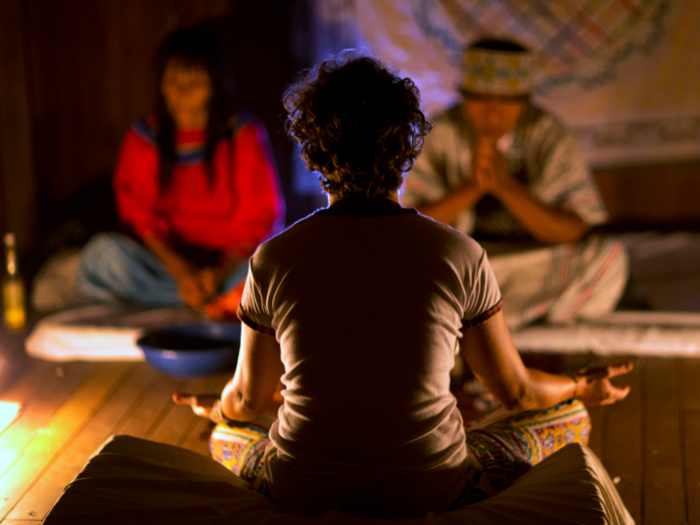
Small studies show enhancements to creative thinking and psychological flexibility for people who take ayahuasca, which could also increase its therapeutic potential.
It's a fascinating substance, though one that researchers would like to learn more about.

Researchers think there's good reason to be excited about the therapeutic possibilities of ayahuasca and other psychedelics. In the US, there's even legal use, in the context of religious ceremonies. But much more research on how ayahuasca and other psychedelics work is needed.
Popular Right Now
Popular Keywords
Advertisement